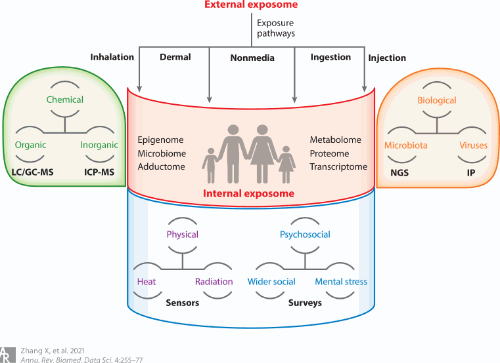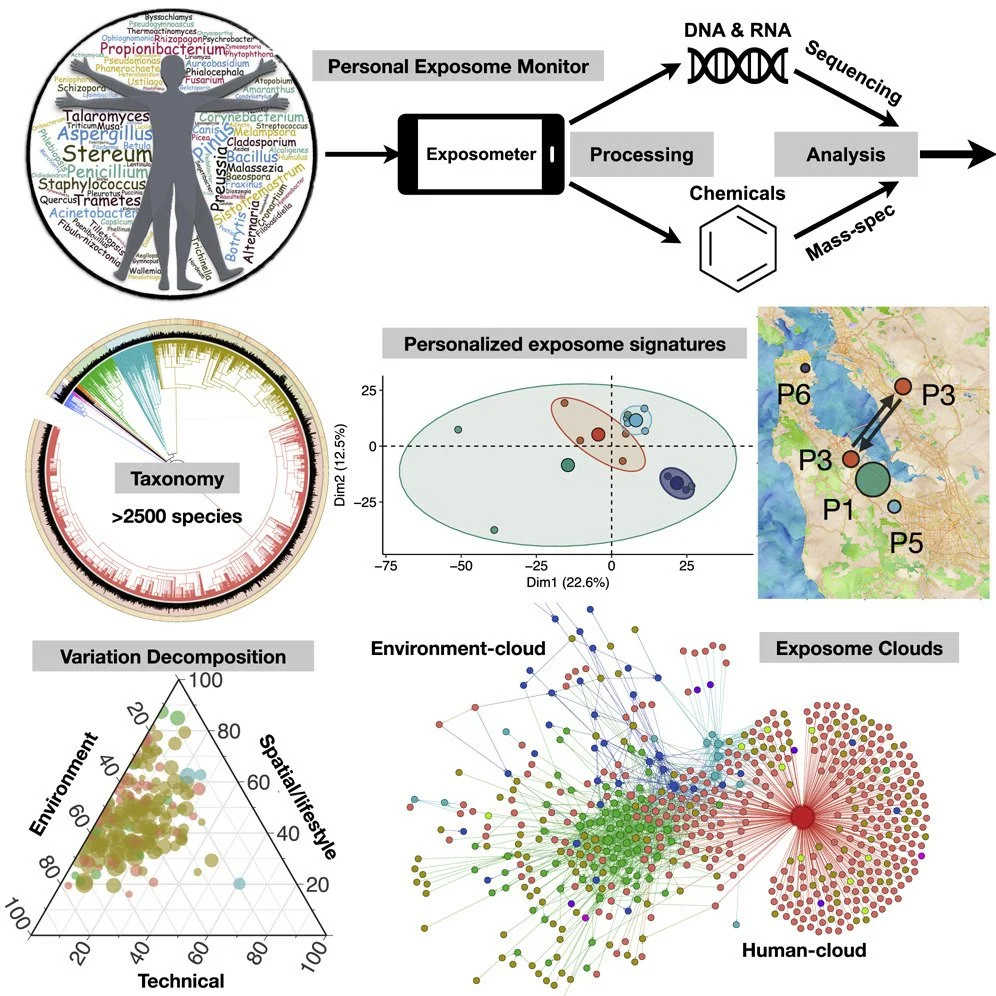
Exposomics
Enabling Precision Environmental Health
Meet your PET
Personal Exposome Tracker (PET) is a compact device that monitors the airborne exposome. PET reports in real-time particulate matter concentrations, air quality index, humidity, and temperature. What sets PET apart from other air quality sensors is that PET is capable of collecting both biological (e.g. fungi, bacteria, viruses) and chemical (e.g. plastics, paints, pesticides) exposures. Coupled with our patented detection workflow, PET provides the most detailed exposure information at the personal level. The miniature PET can be worn on the user or placed in a fixed location if needed.
Ready to get your PET?
Contact us to learn more
What can we detect?
With our high-resolution analysis, we discover >2500 species, including bacteria, fungi, viruses, plants, animals, etc. and >3000 chemical features, such as carcinogens, pesticides, plastics, etc.
Our
Science
What is the exposome?
The exposome, which includes all environmental exposures (e.g., diet, pollution, stress) that influence health alongside genetics. Chronic exposure to harmful factors can increase disease risk, impacting metabolism, brain function, and overall well-being. Understanding and modifying the exposome through lifestyle changes can help mitigate these risks and improve health outcomes.
Publications
About
Exposomics
Exposomics is a cutting-edge company that is focused on understanding and improving the personal exposome and environmental health. We specialize in the development of innovative technologies and products that are designed to track and analyze the various environmental exposures that individuals experience throughout their lives.
At Exposomics, we believe that understanding an individual's personal exposome is key to improving the overall health and well-being. By analyzing the various environmental factors that individuals are exposed to, such as air pollution, UV radiation, and noise pollution, we are able to provide them with actionable insights that can help them to make more informed decisions about their lifestyle and environmental choices. Our goal is to empower people with the information they need to make better decisions about their health and well-being, and to create a healthier world for all.
Our
Team
-
Michael Snyder is the Stanford Ascherman Professor and the Director of the Center of Genomics and Personalized Medicine. He is a leader in the field of functional genomics and proteomics. His laboratory study was the first to perform a large-scale functional genomics project in any organism, and currently carries out a variety of projects in the areas of genomics and proteomics both in yeast and humans. These include the large-scale analysis of proteins using protein microarrays and the global mapping of the binding sites of chromosomal proteins. His laboratory built the first proteome chip for any organism and the first high resolution tiling array for the entire human genome.
-
Dr. Zhang is an expert in exposome research. Her research focuses on understanding the human exposome, particularly, how the exposome affects human health. She is interested in applying multi-omics approaches using high-throughput sequencing, mass-spectrometry, and wearable devices to understand the exposome and its health consequences at the personal level. She has developed a wearable device to capture the personal exposome and has studied the human exposome in multiple environmental settings.
-
Dr. Fanqing Frank Chen has been founder for several successful companies, including Optokey, Inc., a nanophotonics company focusing on miniaturized high data content measurement technology for chemical analysis and healthcare. He is an expert in the field of life sciences, chemistry, material sciences, and nanotechnology. He specializes in helping clients in these industries through R&D collaborations, or helping to identify partner companies for M&A and corporate equity investments.
-
Jeremy Woods is an expert on genomic medicine with a special focus innovative data solutions to clinical and public health problems. As a clinical geneticist he has participated in innovative projects such as the trial leading to FDA approval for the first gene therapy for Duchenne muscular dystrophy, the Undiagnosed Diseases Network, and Project Baby Bear genotyping. He is a pioneer in point of care genotyping with a specific interest in pharmacogenetics and automated environmental pathogen detection.
























